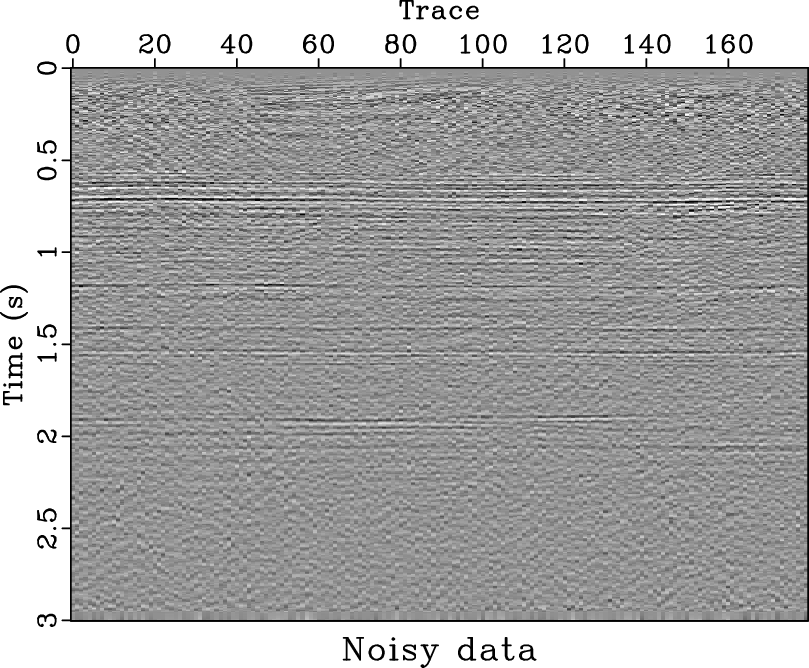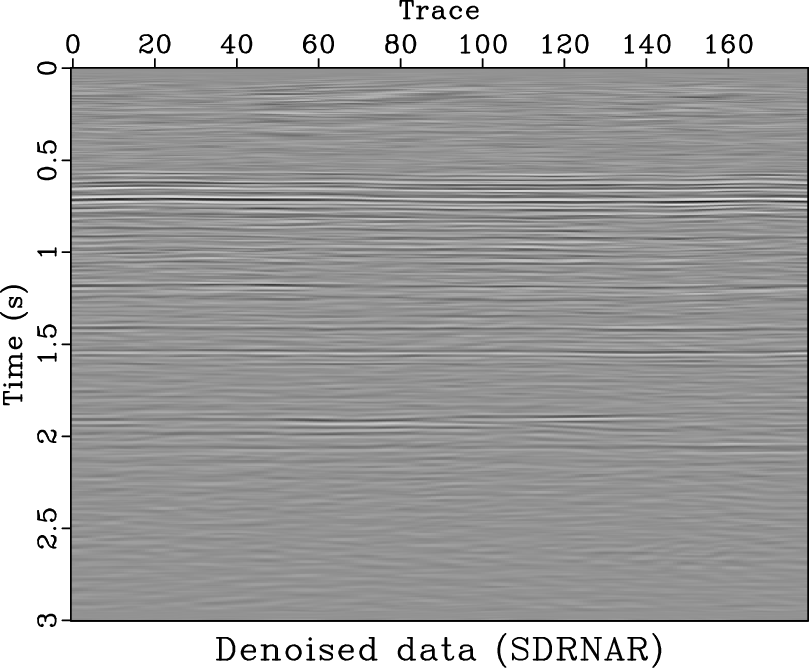A new paper is added to the collection of reproducible documents: Application of spectral decomposition using regularized non-stationary autoregression to random noise attenuation


We propose an application of spectral decomposition using regularized non-stationary autoregression (SDRNAR) to random noise attenuation. SDRNAR is a recently proposed signal-analysis method, which aims at decomposing the seismic signal into several spectral components, each of which has a smoothly variable frequency and smoothly variable amplitude. In the proposed novel denoising approach, random noise is deemed to be the residual part of decomposed spectral components because it is unpredictable. One unique property of this novel denoising approach is that the amplitude maps for different frequency components can also be obtained during the denoising process, which can be valuable for some interpretation tasks. Compared with spectral decomposition algorithm by empirical mode decomposition (EMD), SDRNAR has higher efficiency and better decomposition performance. Compared with $f$-$x$ deconvolution and mean filter, the proposed denoising approach can obtain higher signal-to-noise ratio (SNR) and preserve more useful energy. The proposed approach can only be applied to seismic profiles with relatively flat events, which becomes its main limitation. However, because it is applied trace by trace, it can preserve spatial discontinuities. We use both synthetic and field data examples to demonstrate the performance of the proposed method.



